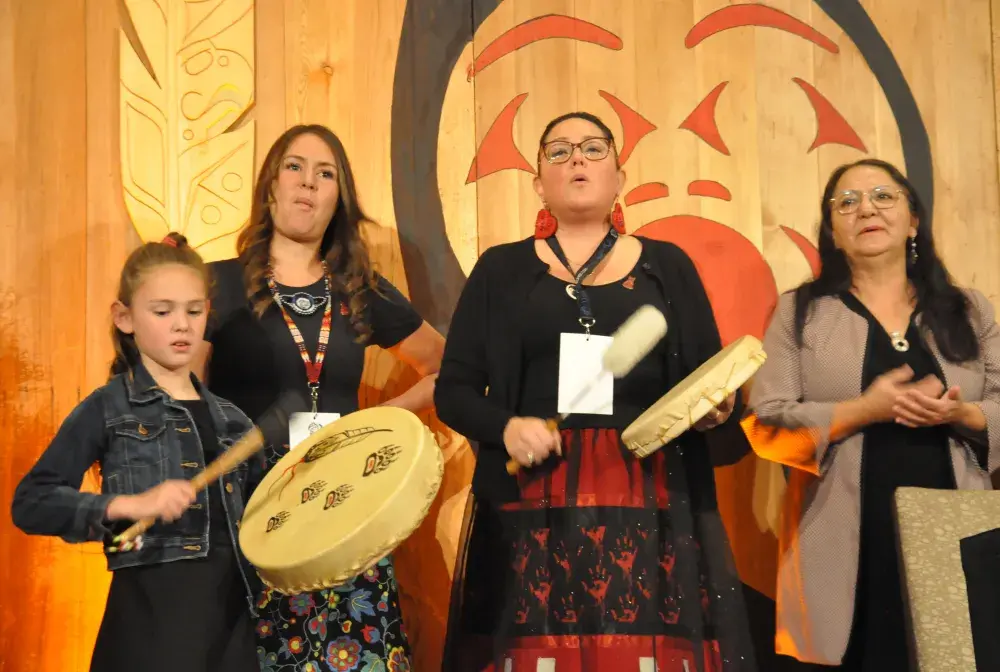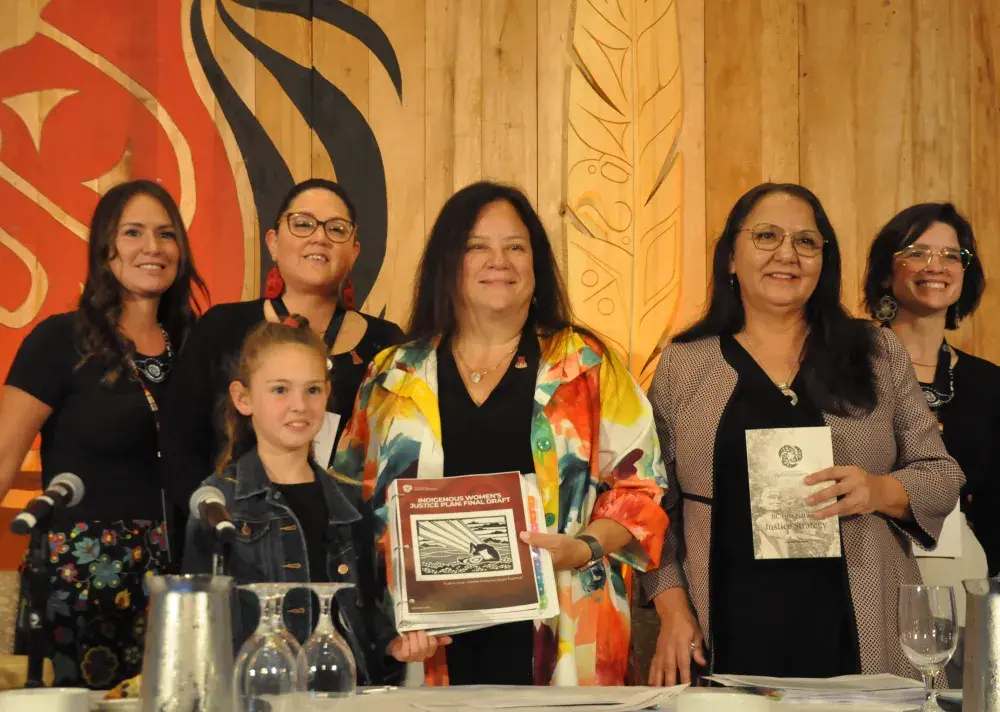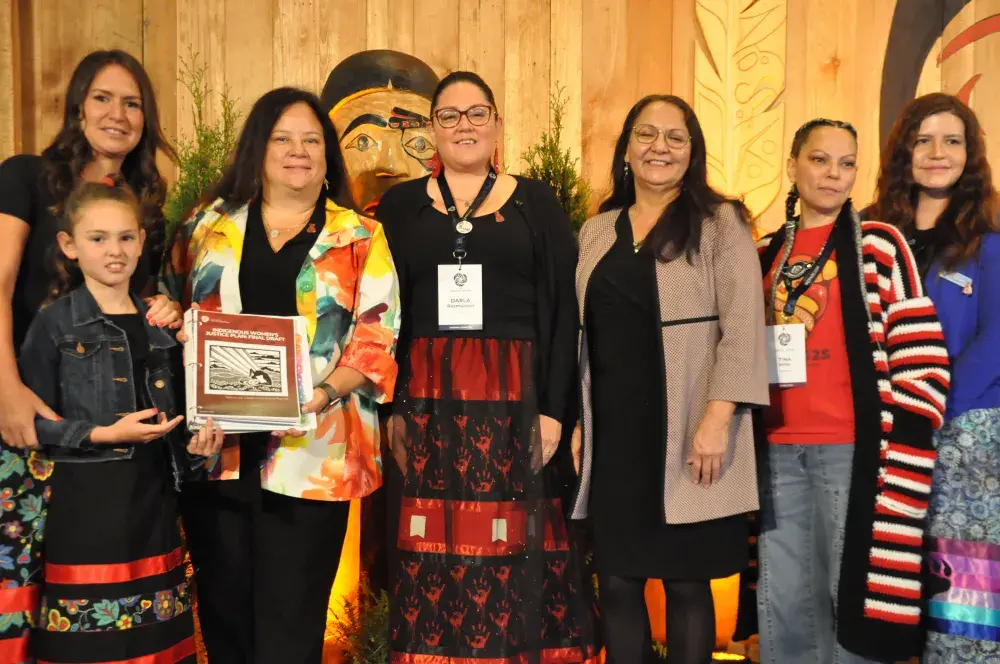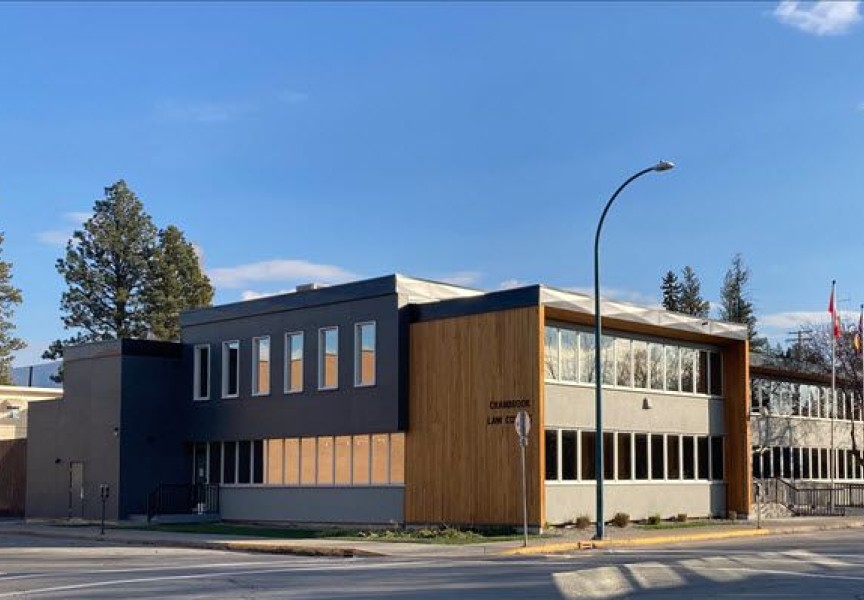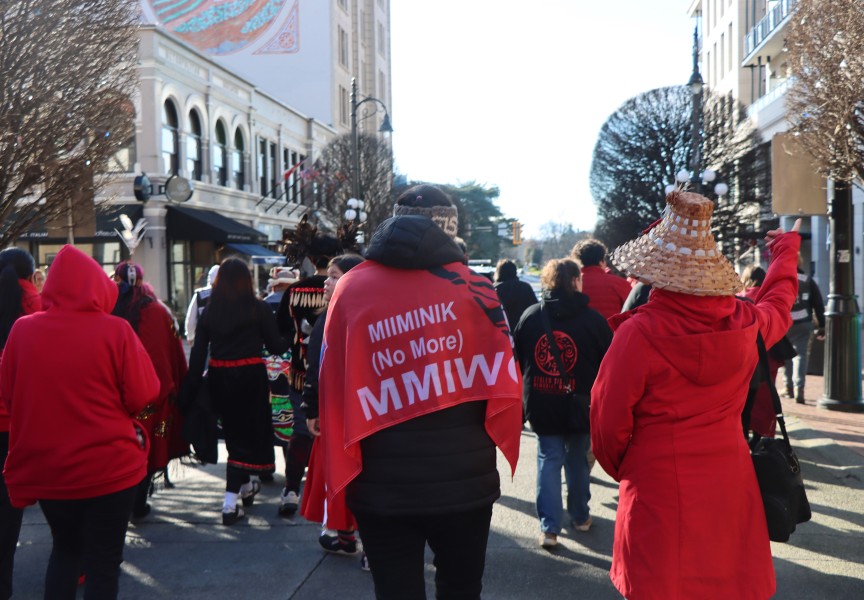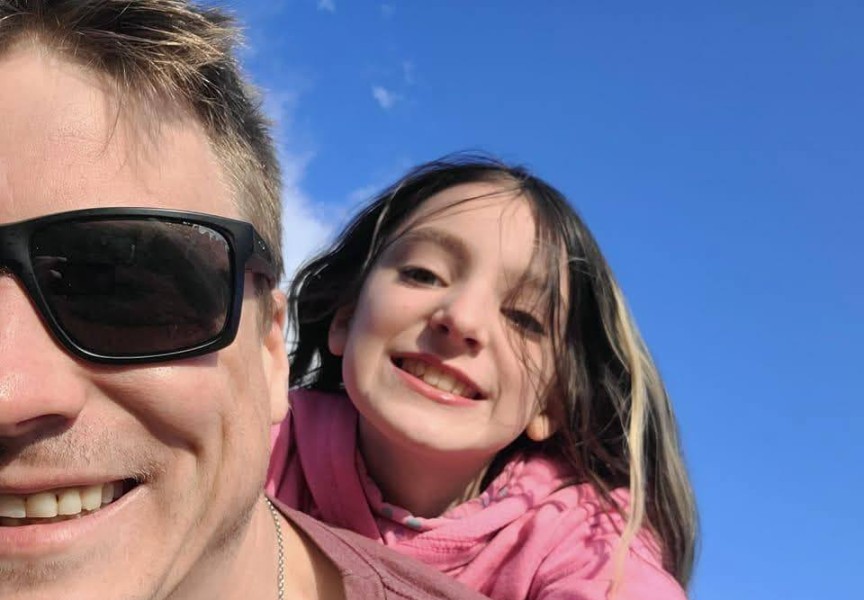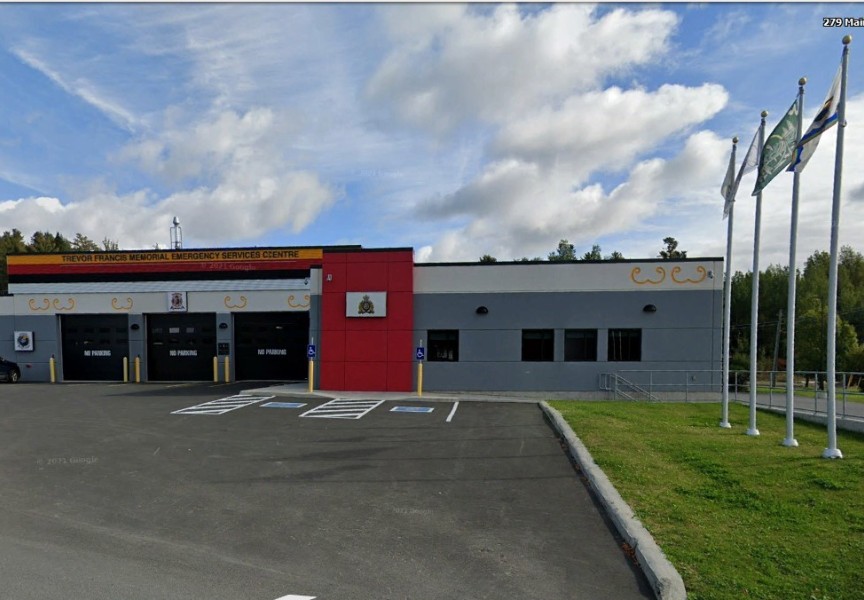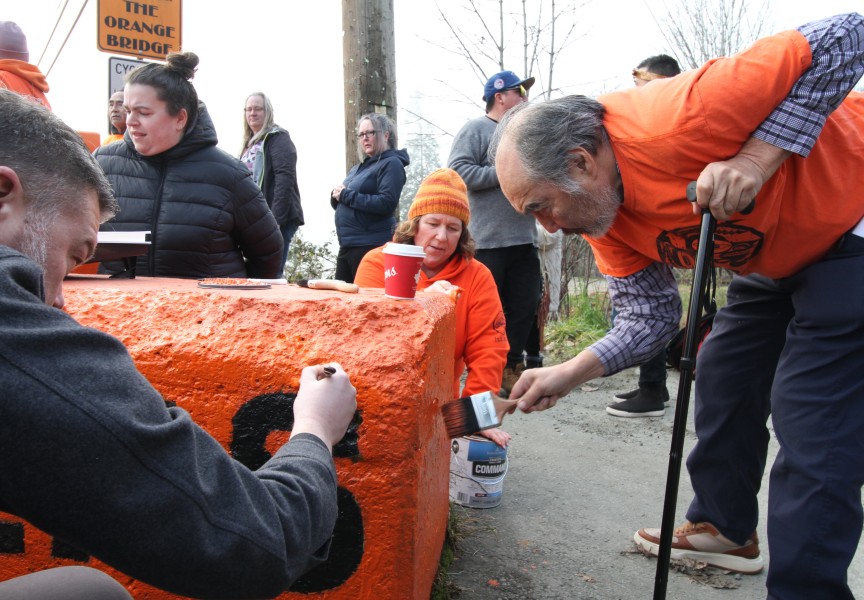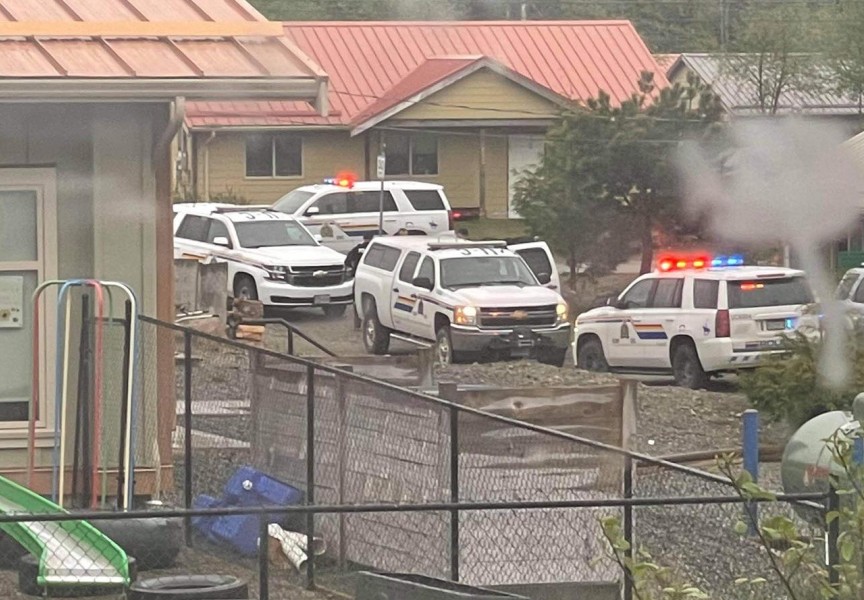With Indigenous women accounting for 50 per cent of the federal female inmate population - a statistic that has almost doubled since 2006 - the BC First Nation Justice Council released the final draft of a document aimed to build better and safer outcomes for women, girls, and two-spirit folks.
“Indigenous women today are still at the margins of society and at the negative end of Canada’s socio-economic indicators,” said Kory Wilson, chair of the BCFNJC and lead on the Indigenous Women Justice Plan, in a press release. “It’s time to act; time to implement. We need to transform the justice system so that my three daughters are not more likely to be incarcerated, or worse, because they are Indigenous.”
Though Indigenous women represent four per cent of Canada’s population, they account for half of women incarcerated in federal prisons and are four times more likely to be victims of violence.
Between 2009 and 2021, Statistics Canada reports that 490 Indigenous women were murdered, equating to a rate six times higher than that of non-Aboriginal victims.
Stemming from the BC First Nations Justice Strategy, the BCFNJC was tasked to complete the final draft of the IWJP in a 12-month time period. The draft is inclusive of feedback from 17 in-person and three virtual engagement sessions held in the fall of 2023 in communities throughout the province, including Port Alberni. It builds off of high-profile reports and recommendations, such as the National Inquiry into MMIWG2S+ Calls for Justice, Red Women Rising Report, and Highway of Tears symposium report.
“There's no space for women in the current justice system,” said Darla Rasmussen, a steering committee member for the BCFNJC. “It completely erases us.”
Throughout First Nation communities, Indigenous women, girls, and two-spirit folks hold sacred roles as matriarchs, knowledge keepers, healers, teachers, artists, and storytellers, reads the press release.
“Women had a legitimate role in society,” said Lydia Hwitsum, BCFNJC council member. “There was an extraordinary effort by the colonizer to ensure that women didn't have a voice… right from the beginning, there was a strong, strong colonial specific oppression of Indigenous women.”
“In our communities we are matriarchal,” said Rasmussen. “It's the women in our communities that are guiding our people from the youngest to the oldest.”
“Our men are there to hold us up and support us in that voice.”
“What we have is a continuous intentional oppression that led to marginalization of Indigenous people, and then the most vulnerable being, of course, Indigenous women and girls,” said Wilson.
The IWJP, adorned with artwork by Tla-o-qui-aht member Marika Swan, includes two appendices: a proposed collaborative action plan, a framework for the BCFNJC moving forward, and resources and toolkits. The strategy is divided into categories such as policing, prevention, child welfare, placing Indigenous voices at the forefront with steps moving forward.
“We just want to make sure that we have all of the information possible, and that we're creating something that is effective and is efficient and will move towards action,” said Wilson of the reports and recommendations that informed the IWJP.
Outlined in the proposed collaborative action, BCFNJC provides a framework moving forward that will address calls and recommendations from engagement, reports, and activists, reads the IWJP.
Among the various actionable items throughout the strategy is the development of services at BCFNJC’s Indigenous justice centers and legal aid services that fill in gaps for Indigenous women, such as harm reduction services for intimate partner violence and sexual violence.
This will be done through expanding MMIWG2S+ services, such as the Aunties program, providing resources to help navigate the justice system, and the development of “culturally safe and trauma informed access to resources”, among others, reads the IWJP plan.
“My hope is that us women are going to take our power back, and that we are going to take parts of that justice plan, we're going to bring them into our communities, and we're going to create the justice plan that each of our [communities] needs,” said Rasmussen.
“I hope that our women are going to rise from this,” she added. “We're going to fill all those little cracks and gaps, with love, and with knowledge, and with empowerment and encouragement, because we can do this.”

